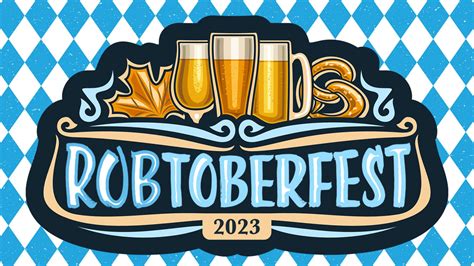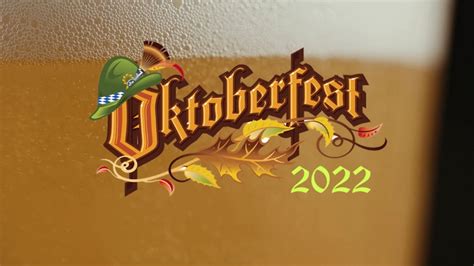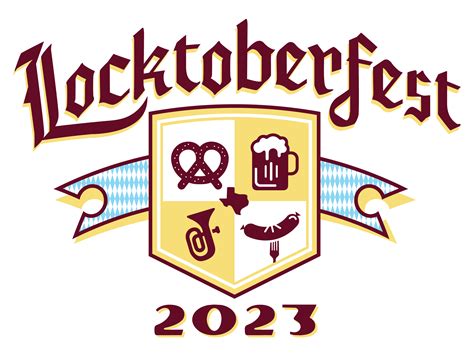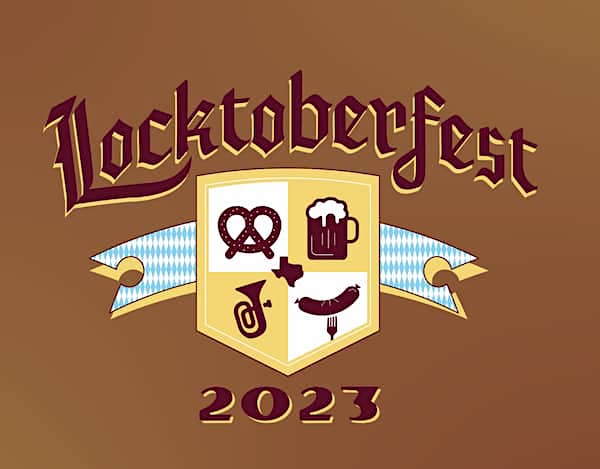Oktoberfest, the world’s largest beer festival, is a vibrant celebration of Bavarian culture and traditions held annually in Munich, Germany. This iconic event, which dates back to 1810, attracts millions of visitors from around the globe, eager to immerse themselves in the festive atmosphere. From the traditional attire of lederhosen and dirndls to the rich flavors of Bavarian cuisine and the lively tunes of folk music, Oktoberfest is a true showcase of the region’s heritage. In this article, we explore the various elements that make Oktoberfest a unique and cherished celebration, both in Bavaria and in its global adaptations.
ritarblog.com will guide you through an in-depth exploration of this topic.
1. Introduction to Oktoberfest
Oktoberfest, a beloved tradition synonymous with Bavarian culture, draws millions of visitors to Munich every year. Its origins date back to 1810, when it began as a royal wedding celebration. Over time, it has transformed into the world’s largest and most famous beer festival, spanning over two weeks from late September to the first weekend in October. Deeply rooted in Bavarian history, Oktoberfest reflects the region’s rich cultural heritage and time-honored customs.
Held at the sprawling Theresienwiese, affectionately known as “Wiesn” by locals, Oktoberfest is far more than just a beer festival. It’s a vibrant celebration of Bavarian culture, overflowing with traditional costumes, hearty food, lively music, and joyful camaraderie. Visitors are welcomed into vast beer tents where they can indulge in world-renowned Bavarian beers, crafted specifically for the festival, alongside authentic regional cuisine.
Oktoberfest’s allure transcends Bavarian borders, sparking similar celebrations across the globe. This global phenomenon unites people in a shared appreciation for Bavarian traditions. From vibrant parades to the lively oompah bands and the sight of elaborately decorated horse-drawn carriages, Oktoberfest offers a unique and unforgettable experience for anyone lucky enough to participate.

2. Traditional Bavarian Attire
Oktoberfest is incomplete without the traditional Bavarian attire, a tangible expression of the region’s heritage and a vital part of the festival’s lively spirit. Men typically wear lederhosen, knee-length leather shorts often paired with a checkered or white shirt, suspenders, and sturdy boots. The ensemble is finalized with accessories like woolen socks and a traditional Bavarian hat, frequently adorned with feathers or brush-like ornaments called gamsbart.
The iconic dirndl, a colorful dress worn by women, embodies Bavarian femininity and tradition. Its design features a fitted bodice, full skirt, and apron, with variations in color, pattern, and fabric reflecting individual style and regional influences. Notably, the placement of the apron bow holds significance, signaling a woman’s marital status: tied on the left for single, on the right for married, and in the center for those who are engaged.
More than a mere throwback to tradition, wearing the traditional attire at Oktoberfest allows participants to fully embrace the festival’s spirit. The sight of countless individuals adorned in lederhosen and dirndls fosters a sense of unity and celebration, transforming the event into a genuine Bavarian experience.

3. Iconic Oktoberfest Beverages
Oktoberfest is famous for its iconic beverages, with beer taking center stage. The festival’s beer selection is deeply rooted in tradition, allowing only six Munich breweries – Augustiner, Hacker-Pschorr, Hofbräu, Löwenbräu, Paulaner, and Spaten – to serve their brews. These breweries create special Oktoberfest beers, known as Märzen, which are slightly stronger than standard lagers. Märzen beers boast a rich, malty flavor and a smooth finish. Served in substantial one-liter steins, these beers are brewed according to the Reinheitsgebot, Germany’s beer purity law, guaranteeing the use of only water, malt, hops, and yeast.
While Oktoberfest is renowned for its beer, it also caters to diverse palates with a selection of non-alcoholic beverages. Radler, a refreshing blend of beer and lemonade, offers a lighter option for those seeking a less potent drink. For those who prefer completely abstaining from alcohol, apple juice, sparkling water, and traditional Bavarian lemonades are readily available. These beverages complement the hearty Bavarian cuisine, enriching the festive atmosphere and providing a glimpse into Bavaria’s rich brewing legacy. Whether savoring a cold stein of Märzen or indulging in a crisp Radler, the beverages at Oktoberfest are an integral part of the celebratory experience.

4. Authentic Bavarian Cuisine
Authentic Bavarian cuisine is a cornerstone of the Oktoberfest experience. It offers a delectable array of traditional dishes, perfectly complementing the festival’s renowned beers. The food at Oktoberfest is hearty, flavorful, and deeply rooted in Bavarian culinary traditions, giving festival-goers a genuine taste of the region.
The Weisswurst, a quintessential Oktoberfest treat, is a delicate white sausage crafted from a blend of minced veal and pork, seasoned with aromatic herbs and spices. Traditionally savored in the morning, it is often paired with a soft pretzel and sweet mustard. Another beloved dish is the Schweinshaxe, a roasted pork knuckle boasting a crispy skin, served alongside potato dumplings and sauerkraut. This hearty meal is a popular choice for those seeking a substantial and satisfying experience.
A staple at Oktoberfest, pretzels, known as Brezn, are large, soft, and salty snacks that pair perfectly with a cold stein of beer. Traditional offerings also include Obatzda, a cheese spread made from ripe Camembert mixed with butter, paprika, and onions. Another favorite is Steckerlfisch, grilled fish on a stick, usually mackerel, cooked over an open flame.
The dishes served at Oktoberfest, bursting with flavor and steeped in tradition, are a quintessential part of the experience. They beautifully represent the pinnacle of Bavarian culinary heritage.
5. Festive Music and Dance
The heart of Oktoberfest beats to the rhythm of festive music and dance. The festival grounds buzz with joy and unity, fueled by the lively tunes of traditional Bavarian folk music. Live bands in each beer tent set the stage, their melodies encouraging dancing, singing, and enthusiastic clapping. From classic polkas and waltzes to rousing marches and popular drinking songs, the music invites everyone to join in and revel in the spirit of celebration.
A beloved musical tradition at Oktoberfest, the Schuhplattler is a traditional Bavarian dance. It involves performers rhythmically slapping their shoes, thighs, and knees to the music. This energetic dance, often performed in groups, is a crowd favorite and contributes to the festive atmosphere.
Beyond folk music, the tents offer a diverse range of entertainment, including modern hits and international melodies, guaranteeing something for everyone. From the traditional oompah bands to vibrant pop music, the music and dancing at Oktoberfest are the heart and soul of the festival, uniting people in a joyous celebration of Bavarian culture, creating unforgettable memories.
6. Oktoberfest Parades and Events
Oktoberfest is more than just beer and food; it’s a vibrant celebration of Bavarian heritage. The festivities begin with the Einzug der Wiesnwirte, a spectacular parade that showcases the pride and tradition of the festival. This colorful procession features elaborately decorated floats, horse-drawn beer wagons, and participants dressed in traditional Bavarian attire. The lively music of accompanying bands adds to the festive atmosphere.
A captivating highlight is the Trachten- und Schützenzug, a costume and marksmen’s parade. This vibrant procession features a dazzling array of Bavarian regional costumes, historical uniforms, and traditional weaponry. With thousands of participants, the parade creates a visually stunning spectacle that celebrates Bavarian heritage.
Adding a rich cultural dimension to Oktoberfest, visitors can immerse themselves in traditional riflemen’s displays, lively brass band concerts, and captivating folk performances that bring the spirit of Bavaria to life. These parades and events offer a deeper connection to Bavarian history and customs, enriching the festive atmosphere and making the celebration truly unforgettable.
7. Oktoberfest Venues and Attractions
Held in Munich, Oktoberfest unfolds on the expansive Theresienwiese, fondly known as the Wiesn. This vast open space becomes a vibrant festival ground, brimming with diverse attractions and venues catering to every whim. At its heart lies a collection of colossal beer tents, each under the stewardship of one of Munich’s six prominent breweries. These tents, varying in size and design, create a lively ambiance where visitors can indulge in traditional Bavarian beer, cuisine, and music.
The Wiesn boasts more than just beer tents. Beyond the suds, visitors can enjoy a vibrant carnival atmosphere complete with thrilling rides, engaging games, and captivating entertainment. The iconic Ferris wheel and adrenaline-pumping roller coasters offer an exhilarating experience, while classic games at booths provide fun for all ages. Traditional Bavarian crafts and souvenirs are available at numerous stalls, allowing guests to take home a tangible memento of their festive experience.
The festival grounds boast the Oktoberfestplatz, a hub of cultural immersion. Here, visitors can engage with captivating exhibitions, lively dance performances, and a diverse array of themed events that unfold throughout the festival. With its dynamic blend of attractions and activities, Oktoberfest at the Wiesn guarantees an unforgettable experience.
8. Global Impact and Celebrations
Oktoberfest’s reach extends far beyond Munich, with its spirit and traditions resonating in celebrations held across the globe. From Chicago to Sydney and Tokyo, cities worldwide host their own versions of Oktoberfest, adapting the Bavarian experience to local cultures while preserving its core elements. These international festivals feature similar beer offerings, traditional foods, and folk music, allowing people everywhere to participate in the festivities.
Oktoberfest’s global reach extends beyond beer, fostering cultural exchange and boosting tourism as individuals journey to Munich to witness the authentic festival. Its success has sparked numerous beer festivals and cultural celebrations across the globe, demonstrating the universal appeal of Bavarian customs.
Moreover, the festival’s global reach has cultivated a deeper appreciation for Bavarian culture, showcasing the region’s traditions and culinary delights on a worldwide platform. This widespread celebration highlights Oktoberfest’s ability to bridge cultural divides and unite individuals through the shared experience of food, drink, and joyous festivities.
9. Personal Reflections on Oktoberfest
Oktoberfest is an unforgettable experience that perfectly blends tradition, culture, and pure joy. As you stroll through the bustling Theresienwiese, you can’t help but be captivated by the infectious energy that fills the air. The vibrant sight of people in traditional Bavarian dress, the lively sounds of folk music, and the tantalizing aromas of delicious food combine to create an immersive atmosphere that feels both festive and authentic.
A defining characteristic of the festival is the spirit of camaraderie it engenders among attendees. Sharing a table with unfamiliar faces, joining in on traditional Bavarian tunes, and raising a toast together creates a sense of community that bridges cultural differences. The vibrant parades, exhilarating carnival rides, and the pleasure of savoring authentic dishes like Weisswurst and Schweinshaxe further enhance the joyous atmosphere.
Personal reflections on Oktoberfest frequently emphasize its ability to unite individuals in a spirited celebration of Bavarian heritage. Be it the vibrant music, the delectable cuisine, or the festive ambiance, Oktoberfest provides a rich and unforgettable experience that embodies the best of Bavarian culture, fostering connections among people from diverse backgrounds.
Oktoberfest is more than just a festival; it’s a vibrant celebration of Bavarian culture that captivates millions with its rich traditions and joyous atmosphere. From the iconic beer and traditional cuisine to the lively music and colorful parades, every aspect of Oktoberfest reflects the heart of Bavarian heritage. The global reach of the festival underscores its universal appeal, bringing people together to share in the festive spirit. Whether experienced in Munich or through local celebrations worldwide, Oktoberfest offers a unique opportunity to enjoy and appreciate the enduring charm of Bavarian traditions.
ritarblog.com

